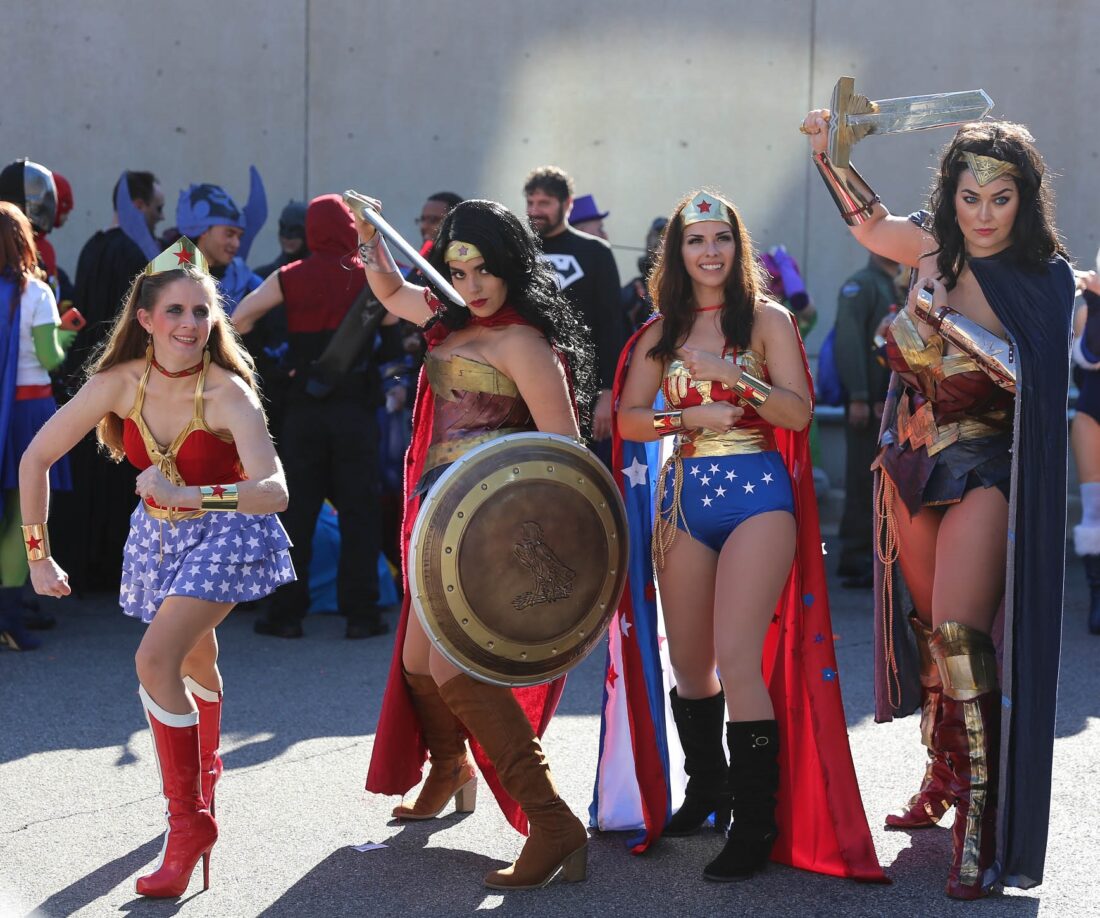Research News: Role of Media Discourse in Constructing Homogenous Notions of an Inclusive Future
September 21, 2022
A new study reflects on the role of media discourse in promoting a notion that films which represent diversity create a specified social reality
In recent years, it has become common to celebrate certain films and television shows for their apparent beneficial effects on society, owing to their representation of diversity. In this study, Dr. Anya Benson analyses the media discourse around such films, by using the 2017 film Wonder Woman as a case study. She highlights that most narratives are based on standardized responses which do not account for diverse and unconventional relationships to media.
Media outlets in current times often promote the narrative that certain blockbuster films and television shows promote social values by representing diverse actors and stories. In many cases, consuming such media is discussed as a method of creating change. However, these narratives are largely derived from the highly visible reactions of some consumers, often overshadowing contradictory reactions.
Recently, Associate Professor Anya Benson from Doshisha University in Japan has examined the English-language claims made about the psychological effects of representation in media. In her study published in Feminist Media Studies on July 6, 2022, she focused on media surrounding the Wonder Woman movie by analysing 28 first-person accounts of viewing the film. “I was struck at the intense reactions described by writers in the USA. I grew curious about the way certain culturally conditioned responses to media become dominant in online discussions, and about people who are overlooked in this process,” Dr. Benson mentioned while discussing what prompted her to conduct this study.
The testimonies analyzed by Dr. Benson can be seen as an aspect of “popular feminism” which uses extreme visibility across interconnected media. Rhetorically, they publicly promote certain films by describing personal emotional reactions.
She observed that popular articles relied on a “standardized” approach by describing cathartic feelings of hope, empowerment, and inspiration that emerge from watching a strong female protagonist. Additionally, these writings often encourage others to watch the movie for the sake of future generations, suggesting that this representation will lead to a brighter future. However, these testimonies normalize one specific emotional response, and assume that a homogenous response will be elicited from all members of the community.
“Media is often shown as fundamentally simple, connected to our own emotions and future in an easily predictable manner. This simplistic framing has become so common that it may feel hard to publicly talk about more innovative or complex relationships to media,” added Dr. Benson.
Moreover, she observed the repeated use of bodily metaphors such as crying, hunger, and starvation to justify the consumption of such films. Public reviews described the audience crying as a metaphor of release from their oppressive past, and satiation of hunger for inclusion.
Notably, children’s interest in the film, and them dressing up as the Wonder Woman character was taken as evidence of its positive influence and promotion of feminism. In some writings, the act of a child wearing a Wonder Woman costume was portrayed as a step towards a better future. This rhetoric assumes that media holds the power to shape a future which upholds the values portrayed in the film. Dr. Benson remarked, “I hope that we can fixate less on attempts to make ‘good’ young people by creating ‘good’ media, and instead focus on young people’s own meaning-making.”
How can this research make a difference in media’s portrayal of the power of representation? “Thinking about the allegiances or ideals conveyed in such narratives of personal experience, especially as they are shared across media platforms, can shed light on the complexity of today’s media environment,” concluded Dr. Benson.
This study critically questions prominent stories about media today, calling for media diversity that accounts for complex and inclusive views.
Reference
| Title of original paper | Feeling the future: Wonder Woman discourse and the demands of media response |
| Journal | Feminist Media Studies |
| DOI | 10.1080/14680777.2022.2097723 |

The media portrayal of new-age films as a means to achieve a diverse and inclusive future
A new study that analyzed media discourse surrounding the 2017 Wonder Woman film found that the media today portrayed the film as a cathartic experience which empowers women from marginalized communities and can promote a bright future for them.
Image courtesy: “New York Comic Con 2016 – Wonder Woman” by Rich. S.
Image license: CC by 2.0
Image link: https://wordpress.org/openverse/image/a2238252-322a-4861-a5e6-4e6b02ef077f/
Profile

Dr. Anya Clarissa Benson is an Associate Professor at the Center for Global Education at Doshisha University in Japan. Her research examines the marketing and merchandising strategies used by contemporary youth media franchises. She has been published in journals including Contemporary Japan and Creative Industries Journal.
ANYA CLARISSA BENSON
Associate Professor , Center for Global Education
Media contact
Organization for Research Initiatives & Development
Doshisha University
Kyotanabe, Kyoto 610-0394, JAPAN
CONTACT US
